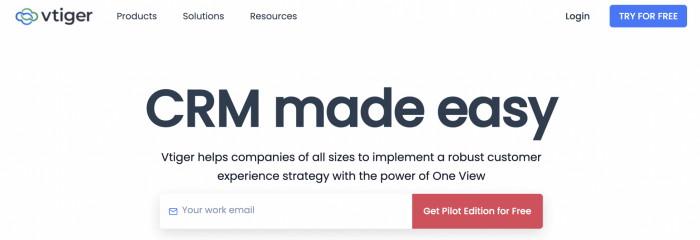In today’s competitive legal landscape, efficient client management is paramount. Law firm CRM software offers a powerful solution, streamlining operations and boosting profitability. This comprehensive guide explores the key features, benefits, and considerations when choosing the right CRM for your law firm. We’ll delve into various aspects, from contact management and case tracking to marketing automation and reporting, ensuring you have a clear understanding of how this technology can transform your practice.
Understanding the Importance of CRM for Law Firms
A robust CRM system is no longer a luxury but a necessity for modern law firms. It centralizes client information, improves communication, and automates tasks, freeing up valuable time for lawyers and staff to focus on core competencies – providing exceptional legal services. This translates to increased efficiency, improved client satisfaction, and ultimately, greater revenue generation. Without a centralized system, crucial client details can be scattered across emails, spreadsheets, and sticky notes, leading to inefficiencies and potential errors.
A dedicated CRM consolidates everything into one easily accessible location.
Key Features of Effective Law Firm CRM Software
- Contact Management: Comprehensive contact profiles with detailed information on clients, potential clients (leads), and opposing counsel. This includes contact history, communication logs, and important case-related details.
- Case Management: Tracking the progress of cases, deadlines, and tasks associated with each client’s matter. This ensures timely execution and prevents missed deadlines.
- Document Management: Secure storage and easy retrieval of crucial documents related to cases, such as contracts, pleadings, and correspondence. Integration with cloud storage services is often a desirable feature.
- Communication Management: Centralized communication platform for emails, phone calls, and other interactions, providing a complete history of client communication.
- Time Tracking and Billing: Accurate tracking of time spent on cases, simplifying billing processes and improving profitability analysis. Integration with accounting software is often a key requirement.
- Marketing Automation: Tools for targeted marketing campaigns, nurturing leads, and automating follow-up communications. This can significantly improve client acquisition efforts.
- Reporting and Analytics: Generating insightful reports on key performance indicators (KPIs) such as case win rates, client acquisition costs, and revenue generated. This data-driven approach facilitates strategic decision-making.
- Integration with Other Software: Seamless integration with existing software such as Microsoft Office, email clients, and accounting software is crucial for optimal workflow.
- Security and Compliance: Robust security measures to protect sensitive client data, ensuring compliance with relevant regulations such as GDPR and HIPAA.
Choosing the Right Law Firm CRM Software: Key Considerations
Selecting the ideal CRM requires careful consideration of your firm’s specific needs and budget. Factors to consider include:
Size and Type of Law Firm
A small solo practice will have different needs than a large corporate law firm. Small firms might benefit from simpler, more affordable solutions, while larger firms may require more sophisticated systems with advanced features and scalability.
Budget and Pricing Models
CRM software comes with various pricing models, including subscription-based fees, per-user fees, and one-time purchase options. Carefully evaluate the cost versus the benefits to determine the most suitable option for your budget.
Features and Functionality
Prioritize the features that are most relevant to your firm’s operations. Consider the importance of case management, document management, marketing automation, and reporting capabilities.

Source: teamwave.com
Ease of Use and Implementation, Law firm crm software
The CRM should be intuitive and easy for your staff to use. A smooth implementation process is also crucial to minimize disruption to your workflow.
Integration Capabilities
Ensure the CRM integrates seamlessly with your existing software to avoid data silos and improve overall efficiency.
Customer Support and Training
Reliable customer support and comprehensive training are essential to ensure successful adoption and ongoing use of the CRM system.

Source: webfx.com
Top Law Firm CRM Software Options
(Note: This section would typically list and briefly describe several popular CRM options. Due to the constantly evolving market and potential for bias, specific product recommendations are omitted here. Researching current market leaders is recommended.)
Benefits of Implementing a Law Firm CRM: Law Firm Crm Software
- Improved Client Relationships: Personalized communication and efficient case management lead to higher client satisfaction.
- Increased Efficiency and Productivity: Automation of tasks and streamlined workflows free up time for more strategic activities.
- Enhanced Collaboration: Centralized information improves communication and collaboration among team members.
- Better Case Management: Reduces errors, improves time management, and ensures timely completion of tasks.
- Improved Revenue Generation: Better time tracking and billing processes lead to increased profitability.
- Data-Driven Decision Making: Detailed reports and analytics provide insights for strategic planning and growth.
Frequently Asked Questions (FAQ)
- Q: How much does law firm CRM software cost? A: Pricing varies widely depending on the features, provider, and number of users. Expect to find options ranging from affordable monthly subscriptions to more expensive enterprise solutions.
- Q: Is CRM software secure? A: Reputable CRM providers prioritize data security and compliance with relevant regulations. Look for features like encryption, access controls, and regular security updates.
- Q: How long does it take to implement a CRM? A: Implementation time depends on the complexity of the system and the size of your firm. Expect a process ranging from a few weeks to several months.
- Q: What if my staff doesn’t want to use a CRM? A: Proper training and demonstrating the benefits of the system are crucial. Highlighting time savings and improved efficiency can encourage adoption.
- Q: Can a CRM help with marketing? A: Yes, many CRM systems include marketing automation features that can help you nurture leads, automate email campaigns, and track marketing ROI.
Conclusion
Implementing a law firm CRM system is a strategic investment that can significantly enhance efficiency, improve client relationships, and boost profitability. By carefully considering your firm’s specific needs and selecting the right software, you can unlock the full potential of your practice and stay ahead in today’s competitive legal market.
Call to Action
Ready to transform your law firm’s operations? Contact us today for a free consultation to discuss your specific needs and explore the best CRM solutions for your practice. Let us help you streamline your workflows and achieve greater success.
Helpful Answers
What is the cost of law firm CRM software?
The cost varies widely depending on the features, vendor, and number of users. Pricing models range from subscription-based services to one-time purchases. It’s crucial to compare options and choose a solution that aligns with the firm’s budget and needs.

Source: website-files.com
How can I integrate my existing systems with a law firm CRM?
Many CRM systems offer integrations with popular email clients, calendars, and other legal-specific software. Check the software’s capabilities and documentation for details on compatibility and integration options. Some vendors offer professional services to assist with integration.
What security measures are in place to protect client data?
Reputable CRM vendors prioritize data security and implement robust measures, such as encryption, access controls, and regular security audits. It’s essential to choose a vendor that complies with relevant data privacy regulations and provides transparent security information.
What training is available for law firm CRM software?
Most vendors offer training resources, including tutorials, webinars, and sometimes on-site or remote training sessions. The level of training support varies, so it’s important to inquire about available options before making a purchase.
